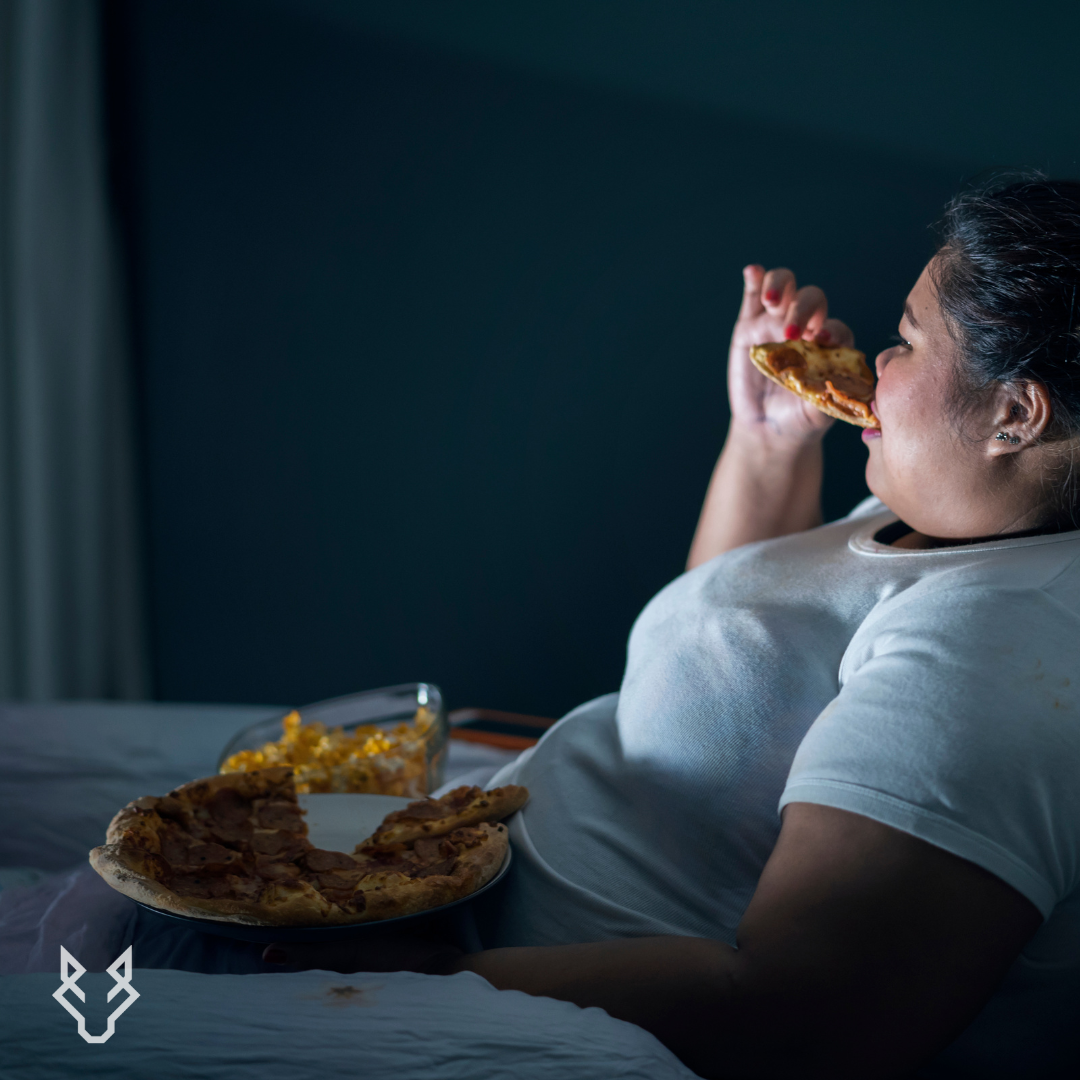You’re doing great all day… then the evening hits, and suddenly the snack cupboard doesn’t stand a chance.
Late-night binge eating is one of the most common habits that can derail progress—not because you’re weak or undisciplined, but because your body and brain are wired that way when certain needs aren’t met. The good news? You can fix it. Here’s why it’s happening and how to take back control—without relying on willpower alone.
You’re Likely Under-Eating Earlier in the Day
Reality: Most late-night binges are the result of not eating enough during the day—especially protein and satisfying meals. If your body feels underfed, it’ll send strong hunger signals at night when you’re finally still.
Fix: Front-load your nutrition. Eat balanced, satisfying meals (with protein, carbs, fats, and fibre) earlier in the day to reduce cravings later on.
You’re Tired, Not Hungry
Reality: Fatigue and stress blur the lines between hunger and exhaustion. At the end of the day, your body craves quick comfort—and food is the easiest solution.
Fix: Start asking yourself: Am I hungry, or just tired/stressed/bored? If it’s not true hunger, try going to bed 30 minutes earlier, going for a walk, reading a book or journaling instead of reaching for snacks.
You’ve Made Food the Reward
Reality: If you constantly say “I’ve been good today, I deserve this,” you’re turning food into a reward system that backfires over time.
Fix: Shift the reward. Choose things that genuinely help you unwind—reading, stretching, a warm shower—without associating success with food.
Conclusion:
Binge eating before bed isn’t a willpower problem—it’s usually a sign your body needs something else: food earlier, rest, or a mindset shift. By fuelling better, unwinding smarter, and recognising the triggers, you’ll feel in control again.



